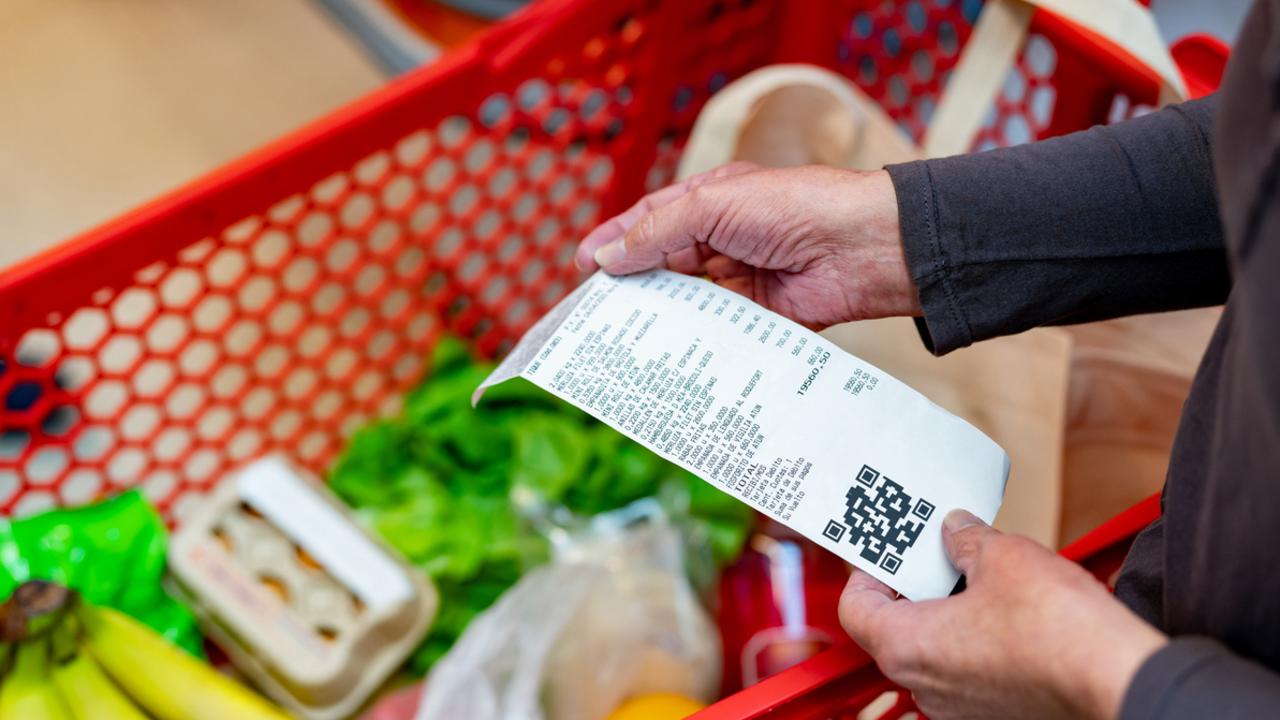‘I started stressing’: 33-year-old mum’s grocery action reveals growing trend
A young Aussie family has revealed the drastic measures they’ve taken to relieve some financial stress.
An Aussie mum’s decision to stop buying the bulk of her groceries from the supermarket has revealed a tough trend hitting families hard in 2025.
Heading to the supermarket shouldn’t seem like a luxury, but rising grocery prices have forced Aussies to get innovative.
Financial comparison website Finder has found that 80 per cent of Aussies are taking steps to cut their grocery bills by 2025.
The research found that 45 per cent are cutting back on non-essential items, while 43 per cent are reducing overall spending.
This comes after Finder found that in 2024, 42 per cent of Aussies admitted they were feeling increasingly stressed by their grocery bill, and 90 per cent said they’d implemented shopping strategies to bring food costs down.


Valerie Strugar, 33, lives in Queensland with her two children and partner. Like most Aussie families, they’ve struggled to navigate the cost of living crisis.
Ms Strugar said she decided she “couldn’t rely on the supermarket any longer” because of the increasing cost.
“I started stressing about my grocery bill a few years ago now. Since then I have noticed an increase in how much I spend on groceries, “she told news.com.au.
“I’d say when I was doing my full food shop at the supermarket, I was comfortably spending $300 to $350 a week.
“It’s so important to ensure our family has nutritious and healthy meals, which is difficult to balance as everything continues to go up in price, it just really adds up.”

Ms Strugar now uses the meal delivery service EveryPlate, which has allowed her to cut her food shop by $50 per cent. She spends only $140 weekly on groceries.
The savings amount to over $2500 a year, which is nothing to sniff at because Ms Strugar explained that her family has to be careful with money.
“The hardest thing about the cost of living crisis has been keeping up with constant price increases, and this can cause a lot of stress for families,” she said.
“We have to constantly negotiate lots of different costs, whether it is rent, or the kids’ activities and then facing the uncertainty of what the future looks like can be tough too.”
Those pressures have been increased by the fact that the family rents and their rent has increased by $200 a week, which has made her even more budget-conscious.
“On top of that, there are so many added costs to consider. For example, extra-curricular activities for the kids, like sports and music, keep going up every year, but we prioritise these because it’s important for them to explore their interests outside of school,” she said.
Halving her grocery bill has money the meant can go towards getting by, paying rent, and it has also given her a sense of relief.
“Saving that money has made me feel so much more in control and confident when it comes to our family’s finances,” she said.


Sarah Megginson, Finder’s personal finance expert, said that as grocery prices continue to rise, even more Australians will likely be forced to adopt extreme shopping habits in the future.
“Australians are feeling the pinch at the supermarket. Grocery shopping is no longer a simple task you do each week – it’s become a strategic exercise in cost-cutting for many Australians,” she said.
Grocery spending reached a record high in January this year — the average household reported spending $209 per week, up 11 per cent from $188 per week in January 2024.
Ms Megginson said it’s more important than ever to shop smart and seek out savings wherever possible.
“You can often find equally good store or generic brands for less, but they sometimes require a bit of searching,” she said.
Ms Megginson also urged Aussies to reconsider impulsive grocery purchases, like grabbing discounted snacks at checkout or choosing pricey eye-level brands.
“Try to be mindful of what you really need versus what you want. Those little extras add up quickly.
“If you don’t already, you may consider shopping online – I’ve found I’m more exact with my shop and less tempted by the sales.
“Making a few small changes can make a huge difference to your grocery bill.”






